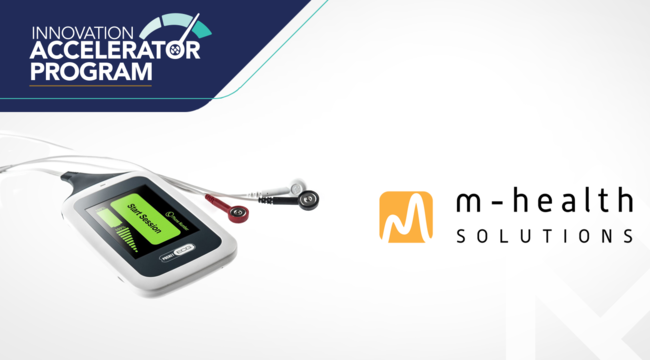Supplier News
Webinar Recap: Evaluating sustainability in the supply chain for HealthPRO RFxs

Earlier this month, HealthPRO hosted an interactive webinar on evaluating sustainability in our RFxs. Led by Kendra Frey, Vice President, Materials Management, and co-hosted by Christine Donaldson, Vice President, Pharmacy, and by Liana Scott, Vice President, Member Support, the session saw over 170 attendees from the supplier stakeholder sector come together for a meaningful presentation on the importance of sustainability across the healthcare supply chain.
________________________________________________________________________
Did you know that Canada’s healthcare system is the 3rd highest polluter per capita in the world? Healthcare leaders agree that we need to stop harming as we heal and HealthPRO is excited to help lead the evolution toward all aspects of sustainability.
Initially prompted in January by a CBC Marketplace investigation into an issue with nitrile glove production, HealthPRO immediately began taking steps toward implementing sustainable procurement practices, with the goal of supporting suppliers in maintaining a sustainable supply chain, and to help members make more informed purchasing decisions.
HealthPRO’s first steps in evaluating sustainability are aimed at creating solutions that provide balance and benefit to the societies, environments, and economies on which we have a footprint.
One of those steps includes the creation of a sustainability scorecard based on the 2030 United Nations agenda and its 17 sustainable development goals (SDGs). HealthPRO is actively engaged with both suppliers and members to align the Canadian healthcare system to this agenda.
“Using the 2030 U.N. agenda as well as ISO 20400, a sustainable procurement guidance document, as guidelines, we’ve created our own sustainability scorecard,” said Kendra Frey, Vice President, Materials Management. “That document offers specific guidance on eight of the 17 SDGs in procurement.”
The scorecard HealthPRO has developed addresses the three pillars of sustainability: social, environmental, and economic. To start, we are focusing on three of the seven focus areas outlined in ISO 20400 to provide a balanced approach to our sustainable journey, those being:
- Human Rights
- Labour Practices
- The Environment
With that information at hand, HealthPRO is implementing three new questions in our RFPs with the goal of gathering information from suppliers to help provide a clearer picture of the conditions in which products are made, where they are coming from, and the impact their production has on local economies and societies.
Those three questions are centered on:
- Environmental Quality: Suppliers will be requested to report the Global Warming Potential (GWP) within their direct control for all direct and indirect emissions expressed as carbon dioxide equivalents (CO2e) for the most-recent reporting year available.
Direct emissions include fuel combustion on site, such as diesel fuel used in vehicles, gas boilers, etc. Indirect emissions include electricity purchased and used by the supplier. - Forced Labour: As defined by the International Labour Organisation (ILO), forced labour is “all work or service which is exacted from any person under the threat of a penalty and for which the person has not offered himself or herself voluntarily."
Suppliers will be requested to provide a copy of any public-facing commitment to eliminating forced labour and will be awarded points based on if the policy addresses the 11 indicators for measuring cases of forced labour outlined by the ILO. - Economic Prosperity: As defined by Global Living Wage (.org), a living wage is “The remuneration received for a standard workweek by a worker in a particular place sufficient to afford a decent standard of living for her or his family. Elements of a decent standard of living include food, water, housing, etc., and all other essential needs including provision for unexpected events.”
Suppliers will be asked (yes or no) if they have a public-facing commitment regarding all workers in their supply chain receiving a living wage and will be requested to provide a copy of the living wage commitment. Points will be awarded based on how the commitment addresses all players and partners within the supply chain.
“We recognize this scorecard is not an exact science and it’s not perfect, but it’s a great start,” Kendra explained. “This is just the beginning to tracking, measuring, and creating awareness.”
Once this information is gathered, HealthPRO will present it in a way that helps members make more informed supplier selection decisions. Below is a snapshot of the overall scorecard – without the quality and service sections - comparing each pillar of sustainability against the total sustainability provided on average across all bidding suppliers and what the procurement score would be.
“This is done to help our members understand what kind of purchasing decisions they are making,” said Kendra. “Members will have an opportunity to see how sustainable a particular supplier is, right alongside the quality of the product, supplier service and price. This creates more awareness and ultimately driving more informed purchasing decisions.”
HealthPRO is actively engaged with senior levels of our membership in order to gain better perspective as to where they are at specifically on their own sustainability journey. Most provinces were starting down the sustainability path ahead of the pandemic and are now once again revisiting these plans, but most Canadian healthcare facilities have yet to track or measure sustainability metrics.
“While they might not be there just yet, healthcare facilities across the country recognize these steps will be a requirement in the future and they are very supportive and happy that HealthPRO will be gathering this information and leading the sustainability charge on their behalf,” Kendra said to draw the presentation to a close.
For more information, please contract Kendra Frey, Vice President, Materials Management


